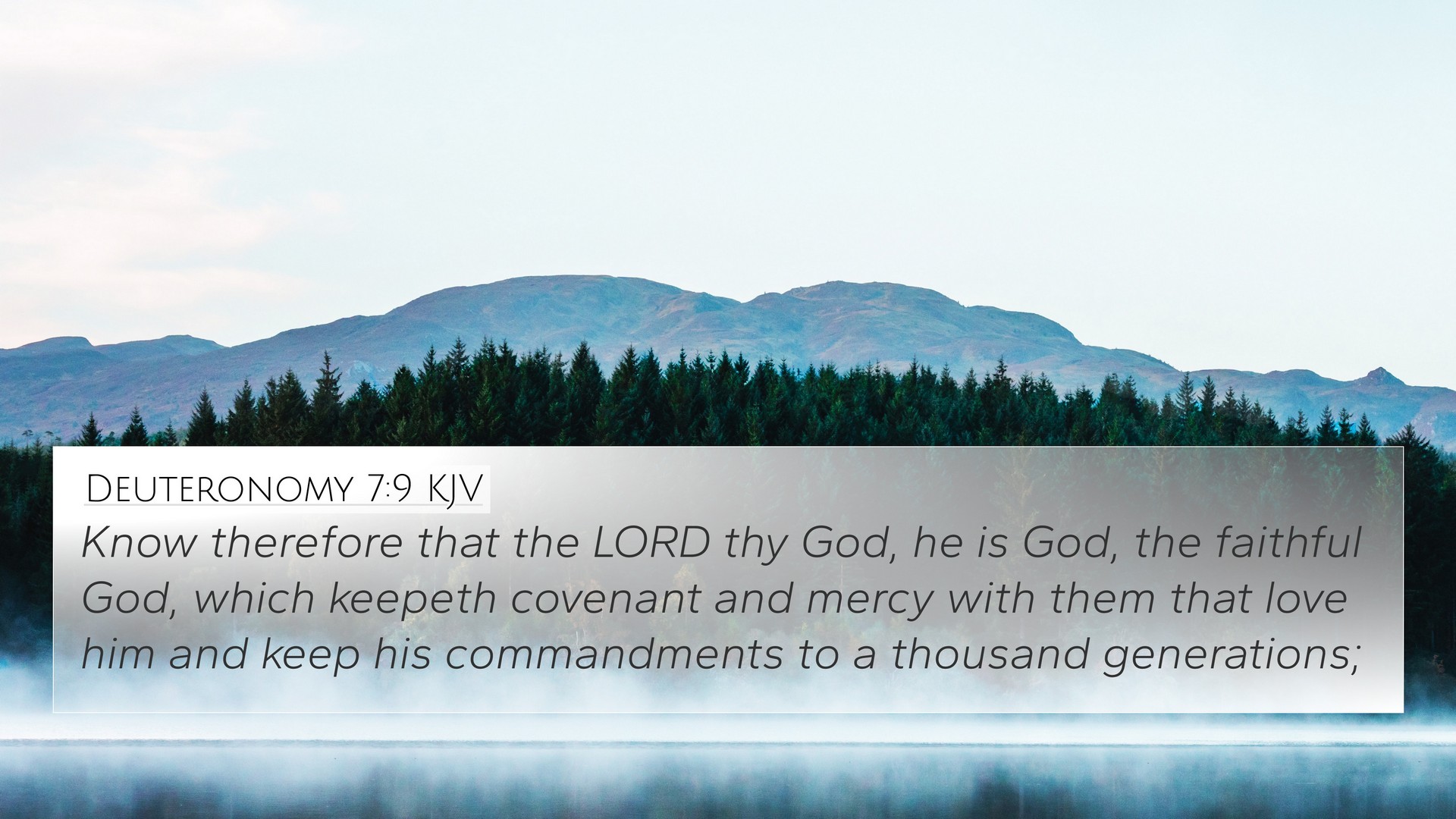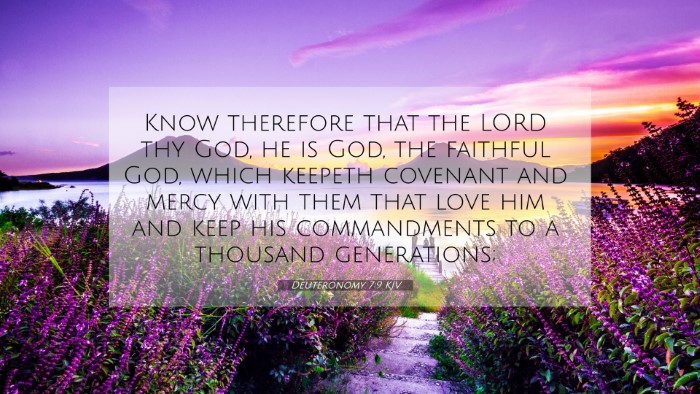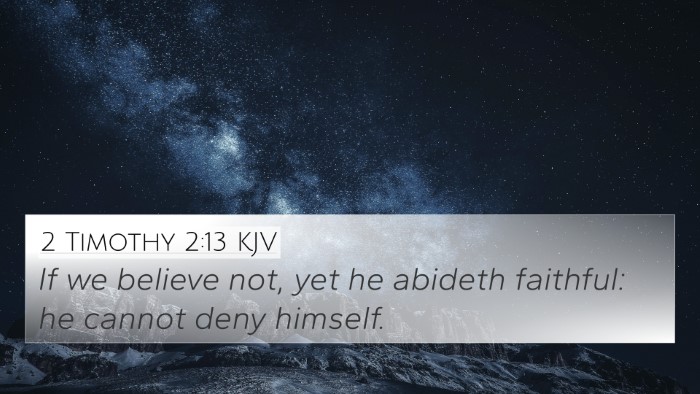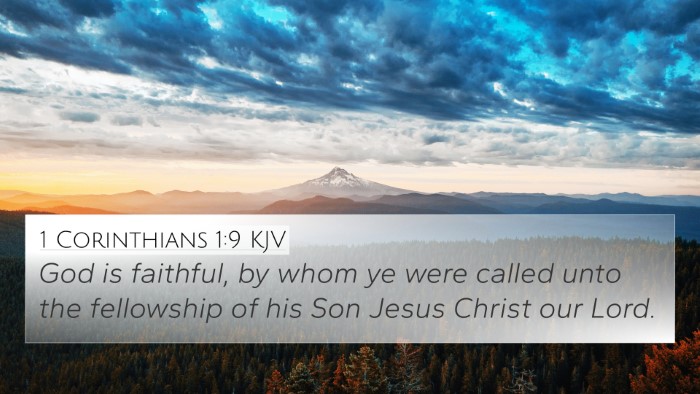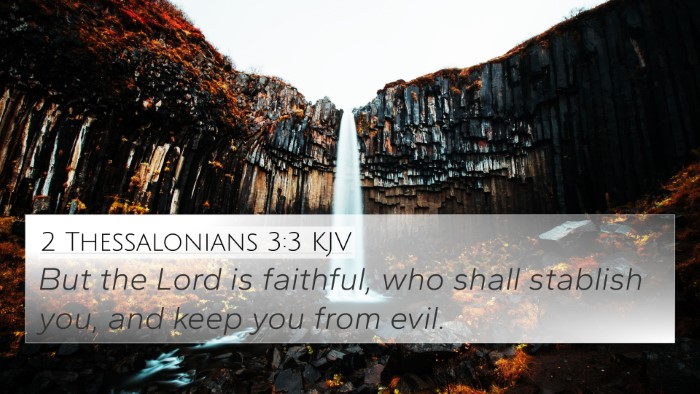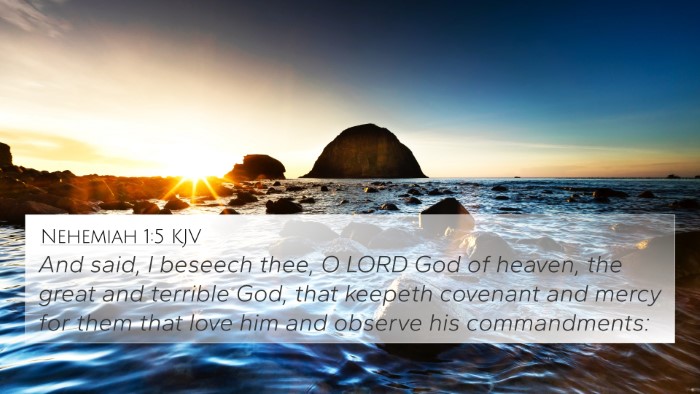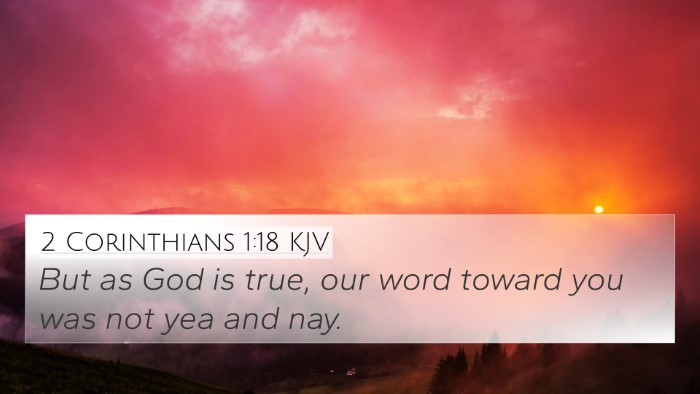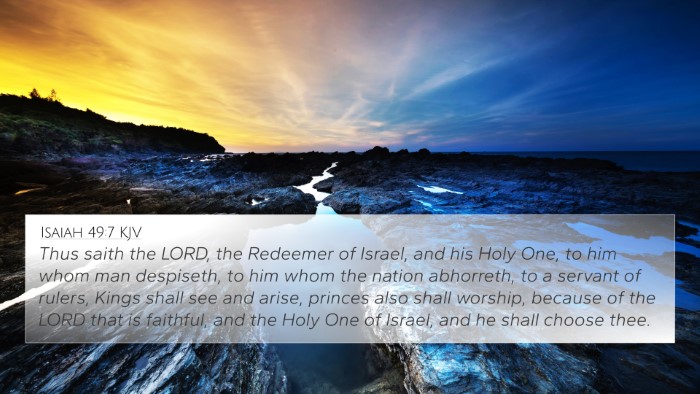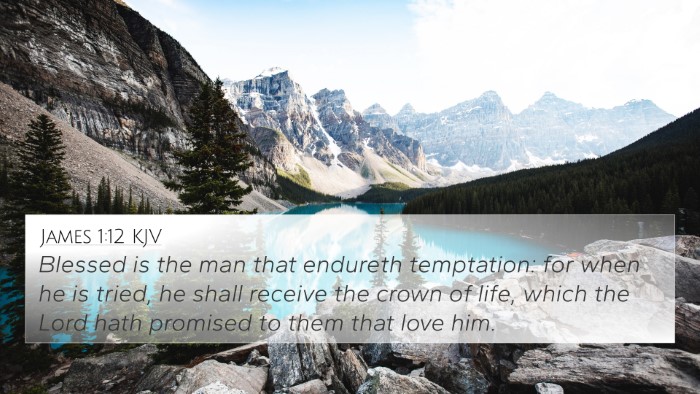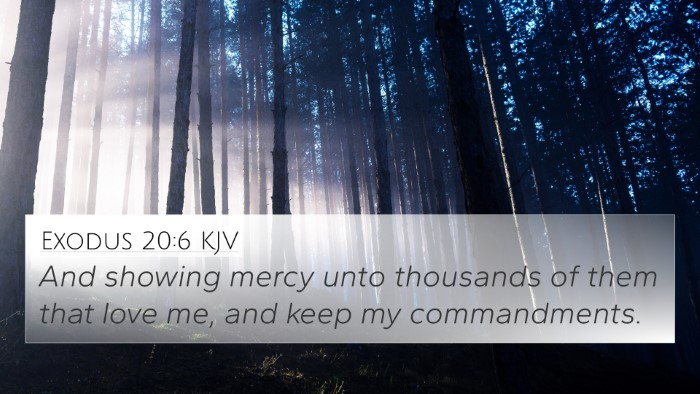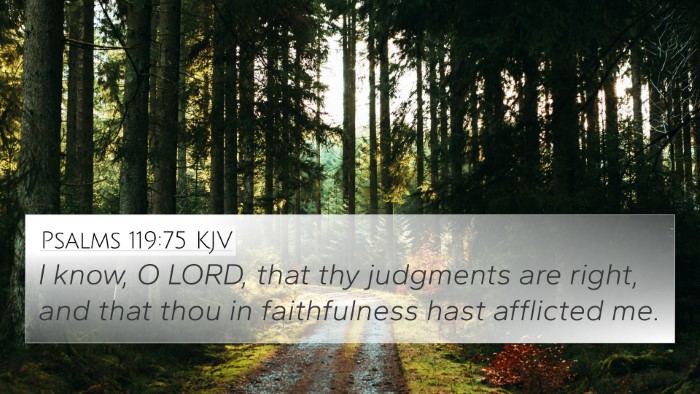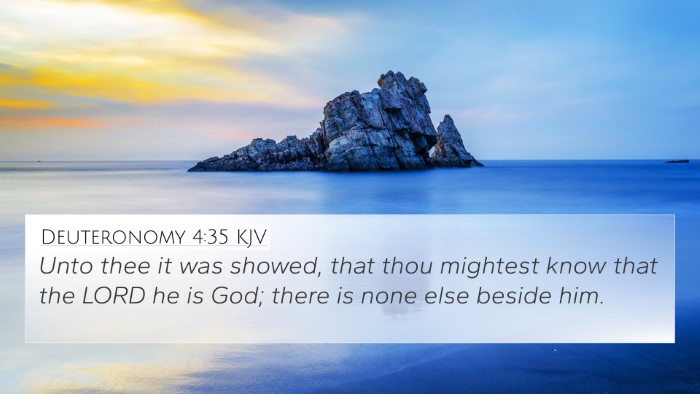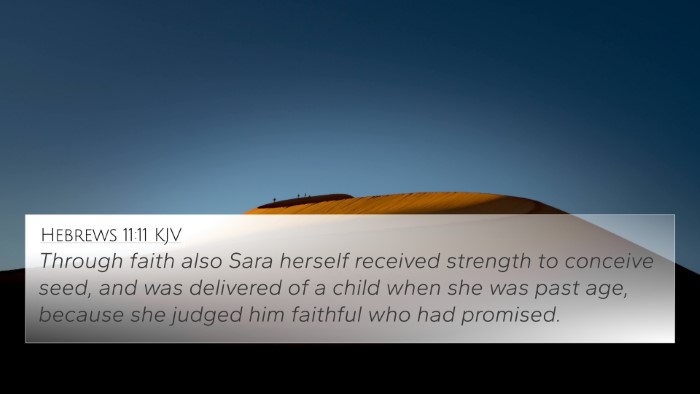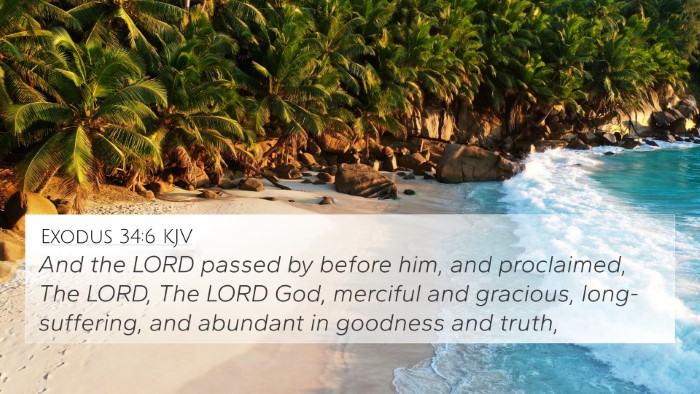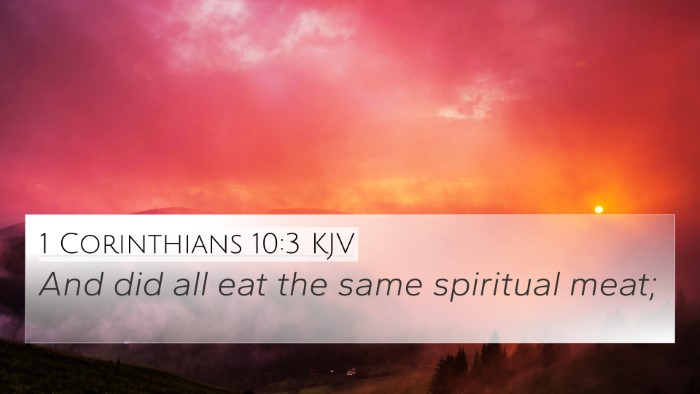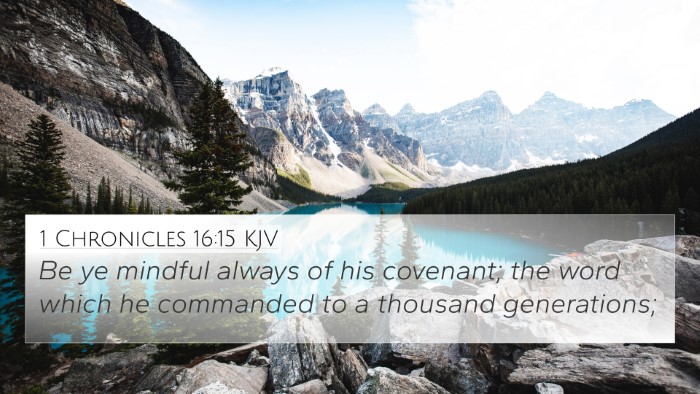Understanding Deuteronomy 7:9
Deuteronomy 7:9 states: "Know therefore that the Lord your God is God; he is the faithful God, keeping his covenant of love to a thousand generations of those who love him and keep his commandments." This verse emphasizes the fidelity of God to His covenant and His enduring love for His people. Below, we explore a comprehensive interpretation of this verse, drawing insights from public domain commentaries by Matthew Henry, Albert Barnes, and Adam Clarke.
Key Themes and Insights
- God's Faithfulness: Matthew Henry highlights that God's faithfulness is a core aspect of His nature. This verse reassures believers of His allegiance and steadfastness throughout generations.
- Covenant Relationship: Albert Barnes explains that the covenant is a solemn agreement, emphasizing reciprocal commitment. God's love is contingent upon the love and obedience of His people.
- Generational Promise: Adam Clarke remarks on the significance of the phrase "to a thousand generations," underscoring the enduring legacy of God's faithfulness across time.
Verse Meaning and Context
Deuteronomy 7:9 is situated in a context where Moses is reminding the Israelites of their unique relationship with God as they prepare to enter the Promised Land. This verse serves as a reminder of their responsibility to maintain their covenant obligations through love and obedience.
Detailed Exegesis
The declaration of God as "the faithful God" establishes His reliability, contrasting the fickleness often seen in human relationships. Henry emphasizes that this faithfulness includes not only keeping promises but also executing judgments against those who disregard His statutes.
Furthermore, the phrase "keeping his covenant of love" illustrates the nature of God's covenant—it is rooted in love, not mere legal obligation. This theme resonates throughout scripture, encouraging believers to reciprocate with love and fidelity.
Connections With Other Scriptures
To grasp the comprehensive meaning of Deuteronomy 7:9, we can cross-reference this verse with other biblical texts that reinforce its themes. Here are several key connections:
- Exodus 34:6-7: God's gracious and compassionate nature, showcasing His faithfulness and justice.
- Psalm 100:5: The lasting nature of the Lord's goodness and faithfulness in every generation.
- 1 Chronicles 16:15: An exhortation to remember God's covenant forever, demonstrating His ongoing faithfulness.
- Hebrews 10:23: An encouragement to hold unswervingly to faith, referencing the faithfulness of God.
- Romans 8:28: God working all things together for good, showcasing His unwavering commitment to His people.
- Joshua 23:14: A reminder that God has kept every promise He made to Israel.
- 2 Timothy 2:13: The assurance that God remains faithful even when we are unfaithful.
- Malachi 3:6: God's unchanging nature, affirming His commitment to His covenant people.
- John 14:15: Jesus connects love with obedience, echoing the importance of maintaining covenant loyalty.
- 1 John 2:5: The love of God being made perfect in those who keep His commandments.
Thematic Analysis
The thematic connections in these scriptures illustrate deep interrelationships, revealing how the concept of God’s covenant and faithfulness flows throughout both the Old and New Testaments. Observing these parallels can enhance one’s understanding of God’s nature and the expectations placed on His people.
Tools for Bible Cross-Referencing
To further explore the connections and to facilitate a deeper understanding of such verses, it's beneficial to utilize a variety of tools for Bible cross-referencing. These tools can include:
- Bible Concordance: An essential resource for locating specific words and phrases across the scriptures.
- Bible Cross-reference Guide: Provides cross-references that illuminate themes and narratives.
- Bible Chain References: A method for tracing themes across diverse sections of scripture.
- Comprehensive Bible Cross-reference Materials: Books or databases that compile cross-references systematically.
Conclusion
In summary, Deuteronomy 7:9 encapsulates fundamental truths about God's character and His relationship with believers. By recognizing His faithfulness, examining the covenant's significance, and engaging in cross-referencing related scriptures, one can gain a profound understanding of this verse's implications for both ancient Israel and contemporary believers.
The exploration of inter-biblical dialogue initiated by this verse opens pathways for ongoing study and reflection on God's enduring promises, encouraging personal application through love and obedience to His commandments.
